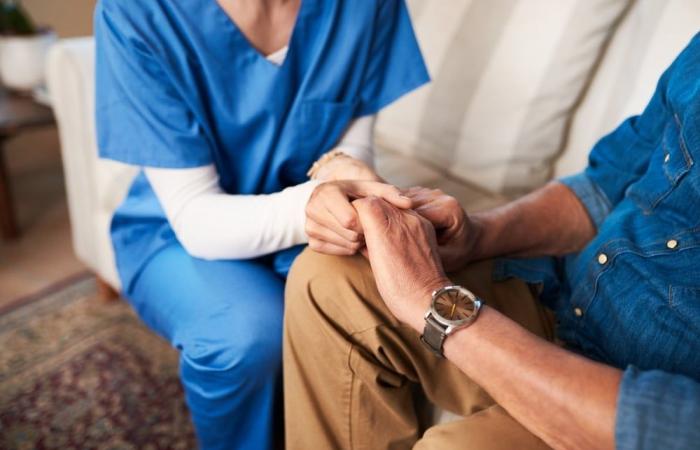Be an actor in your treatment: a key to better living the disease
According to an OpinionWay survey for Merck, 94 % of the bladder cancer patients consider it important to participate in decisions concerning the choice of their treatment. However, only 54 % believe they really had this possibility. “” This reflects the feelings of patients: this loss of control that they often express “Says Lori Cirefire, president of the Cancer Vessie France association. “” They say: I did not have the choice, I had to do it. It is difficult to feel actor when only one option is offered. However, it is a legitimate desire for patients to be able to discuss, think, involve their loved ones before engaging in treatment. »
« When a patient is involved, he becomes an actor in his management. It understands better the issues, more easily accepts constraints, and above all, it appropriates its treatment. This strengthens observance, and therefore efficiency “, Specifies Professor Yann Neuzillet, urologist at Foch hospital and professor of urology at Paris-Saclay University. “” It is necessary to present all the options, including that of not implementing active treatment or to offer treatment perhaps less effective but which do not alter the quality of life. It is a question of respect and confidence. It is up to the patient to make a choice, once well informed. This is called a shared decision. And this dialogue should not be one -way. “” They must be encouraged to ask questions, to express their expectations. Because it is the only way to adapt the care to their life, and not the reverse. »
Quality of life: the loud forgotten of the care path
The bladder cancer has a deep impact on the daily life of patients. The OpinionWay study reveals that bladder cancer strongly affects their quality of life: 86 % of patients declare fatigue impacting their autonomy and 83 % feel an impact on their intimate life. However, only 12 % benefited from suitable care. More than half of the active patients saw their work modified, but only 57 % were able to discuss it with their doctor. Finally, if 79 % report a psychological impact, 36 % received support.
« Sexuality is often the big forgotten of care. And yet, it is a major part of the quality of life. You have to dare to talk about it. Just like professional activity, which is not a luxury but sometimes a vital necessity. Another problem raised by Professor Neuzillet: a sudden monitoring of follow -up after the heaviest treatments. “” After the intensity of care, there is sometimes a feeling of emptiness. Patients can feel abandoned, while side effects, doubts, pain persist. »
Support care: a lever too little known to better experience the disease
Much more than a simple complement, support treatments are a full -fledged pillar of the management of bladder cancer. “” Support treatments is all that we put in place around the main treatment so that it is as effective as possible and that the patient can live it in the best conditions “Explains Professor Yann Neuzillet.
-Adapted physical activity, nutrition, psychological support, physiotherapy, occupational therapy, etc. These care helps to prevent or limit side effects and improve quality of life. “” A good diet, a little exercise before and after an operation, it changes everything. The body recovers faster, the complications are less, and morale also is reinforced. »
If they are still unevenly accessible, their efficiency is no longer to be demonstrated. For Professor Neuzillet, it is essential to talk about it, from the start of the care path. “” When they understand what it is, patients adhere to it spontaneously. Because it’s best. It is more comfort, more autonomy, more serenity. »
For more information, a brochure developed by Merck; In collaboration with the French Association of Urology (AFU), the Cancer Vessie France association, Roseup and the French -speaking association of oncological care (AFSOS); On bladder cancer is available in waiting rooms but also on the following sites: www.merck.fr/cancervessie
You can also consult the website of the Cancer Vessie France association here https://www.cancer-vessie.fr/
Source: Opinion Way Way 2024 – Base 356 Respondents: 149 patients and 207 health professionals – Interview with Lori Cire and Pr Yann Neuzillet, April 2025








